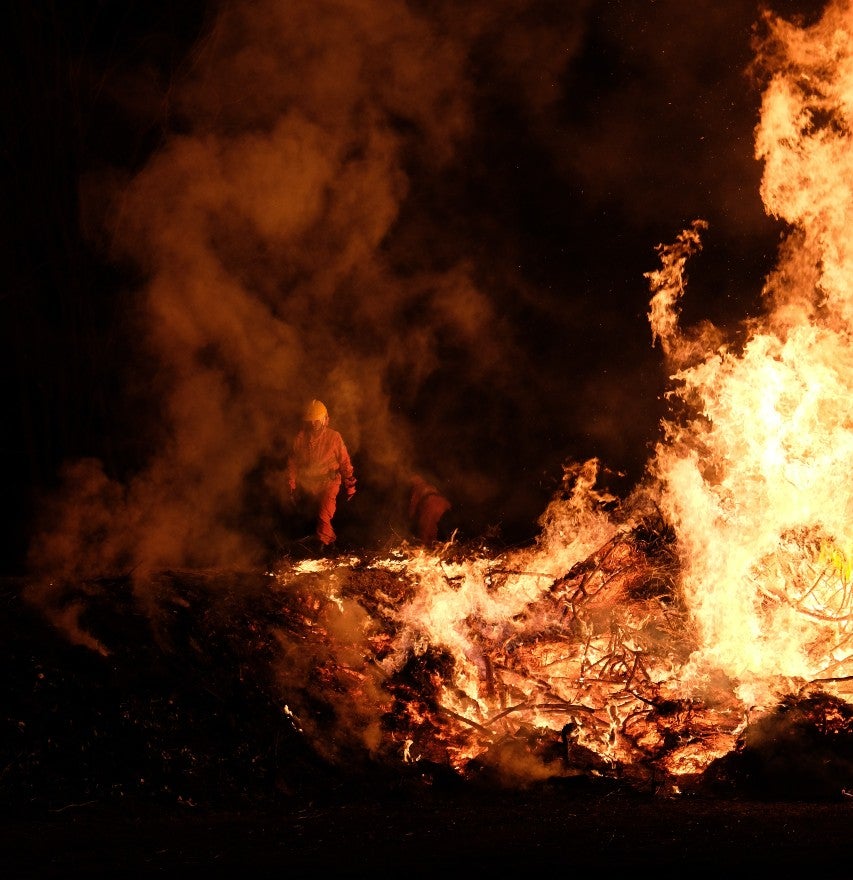Get updates on federal actions from the CU System office.
Categorized in:
CU Advocates for Wildland Fire Research and Coordination
February 22, 2022 by Natalie Barry
Wildfires have impacted Americans across the country. The Marshall Fire in Colorado resulted in the loss of hundreds of homes and businesses. CU advocated for federal coordination, a national wildfire strategy, and science policy bills focused on wildfire risk and damage reduction throughout 2021. CU Boulder researchers, especially at the Cooperative Institute for Research in Environmental Sciences (CIRES) and Western Water Assessment (WWA), worked with CU’s Federal Relations team to engage the executive branch and the Colorado congressional delegation in these efforts.
Advocacy efforts in 2021 included:
- CU requested $16 million for the Joint Fire Science Program in FY22, a $10 million increase from FY21 enacted levels.
- In February, CU fire scientists participated in Colorado Rep. Neguse’s first annual wildfire summit.
- In March, CU urged the Colorado congressional delegation to sign a letter to President Biden requesting $200 million for wildfire research in the FY22 budget request. The letter, led by Colorado Rep. Perlmutter, also calls for a dedicated body at the highest levels of government with the authority to coordinate wildfire R&D across federal agencies.
- In April, CU fire scientists met with the White House Office of Management and Budget (OMB) to discuss wildfire research coordination at the federal level.
- In June, CU fire scientists met with House Science Committee staff to inform efforts to write a comprehensive wildfire R&D authorization bill, which was later introduced as the National Wildland Fire Risk Reduction Program Act (H.R. 5781), legislation which CU has now endorsed.
- In June, at CU’s request, Rep. Perlmutter introduced an amendment to the National Science Foundation for the Future Act (H.R. 2225), directing the National Science Foundation (NSF) to include wildfire science in its risk and resilience work. CU fire scientists were quoted in Rep. Perlmutter’s press release on the amendment. The amendment was most recently passed in the House as part of the America COMPETES Act of 2022 (H.R. 4521).
- In July, CIRES leadership met with the Colorado congressional delegation to discuss the institute’s work on environmental policy issues of importance to Colorado, including research on wildfire smoke, air quality and human health.
- In July, WWA leadership met with the offices of Senators Bennet and Hickenlooper to discuss the program’s work with frontline communities experiencing the impacts of a changing climate.
- In October, CIRES Director Waleed Abdalati discussed efforts to improve climate resiliency in the Rocky Mountain region during a rafting trip with Sens. Bennet and Romney (R-UT). Read more here.
- In November, CU fire scientists provided line-item edits for incorporation in the National Wildland Fire Risk Reduction Program Act (H.R. 5781). At CU’s request, Rep. Perlmutter introduced an amendment, which was adopted, to increase coordination between federal agencies on wildfire warnings and forecasts.
- In November, CU fire scientists responded to the National Institute of Health (NIH)’s Request For Information (RFI) on ways the agency can enhance its research on the health impacts of climate change.
- In November, Chancellor DiStefano wrote to the Colorado congressional delegation to urge inclusion of campus priorities as the House and Senate conference science and innovation legislation. The November 19 letter urges inclusion of Rep. Perlmutter’s wildfire amendment to the National Science Foundation for the Future Act (H.R. 2225).

Wild Fire Stock Photo
Photo by marco allasio from Pexels






Add new comment